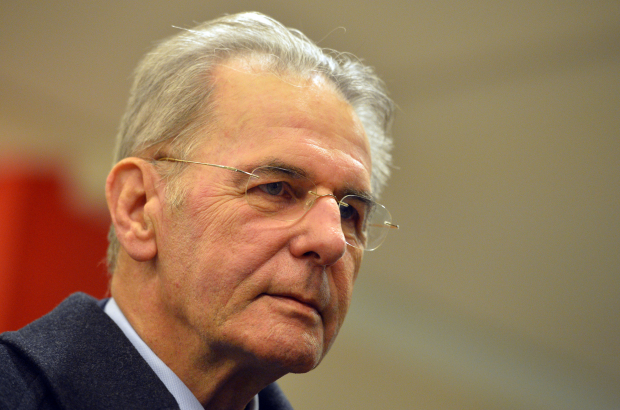- Daily & Weekly newsletters
- Buy & download The Bulletin
- Comment on our articles
Former Olympic president Jacques Rogge dies aged 79
Jacques Rogge, the Belgian former president of the International Olympic Committee (IOC), died on Sunday at the age of 79 after a long illness.
An orthopaedic surgeon by profession, Rogge was seen as a calming influence during his 12-year leadership of the IOC and was greatly respected in both the Belgian and international sporting worlds.
As an athlete, he was a 16-time Belgian national champion in rugby and a yachting world champion. He also competed in the Finn class of sailing at three Summer Olympic Games: in 1968, 1972, and 1976.
Rogge served as president of the Belgian Olympic Committee from 1989 to 1992, and as president of the European Olympic Committees from 1989 to 2001. He then succeeded the Spaniard Juan Antonio Samaranch as head of the IOC a decade after becoming a member.
At the time, the Olympic organisation was plagued with scandals, specifically a corruption case related to the awarding of the 2002 Winter Olympics to Salt Lake City which involved 12 IOC members. Rogge began his presidency by fighting to restore peace within the institution and rebuild its image. He fought tirelessly against doping throughout his career and led the IOC towards financial sustainability by refocusing it on its core business.
Among his many great achievements, Rogge was also responsible for establishing the Youth Olympic Games in 2010, basing the event on his own model which he created for the European Youth Olympic Festival in 1990.
While his greatest success with the Olympic Games was probably the 2012 edition in London, Rogge was also lauded for steering the Games through difficult times such as the Salt Lake City Winter Olympics, held in February 2002, just five months after the 11 September 2001 attacks on the United States, and the human rights outcry that surrounded the contentious Beijing Olympics in 2008.
After being succeeded by the German Thomas Bach as IOC president in 2013, Rogge was appointed Special Envoy for Youth Refugees and Sport by United Nations Secretary-General Ban Ki-moon, to help promote sport as an empowerment tool for youth from displaced and refugee communities. In more recent years, Rogge had retired to his home in Deinze in East Flanders.
After hearing of his death, current IOC president Thomas Bach said in a statement that, "first and foremost, Jacques loved sport and being with athletes and he transmitted this passion to everyone who knew him. His joy in sport was infectious."
"He was an accomplished president, helping to modernise and transform the IOC," Bach continued. "He will be remembered particularly for championing youth sport and for inaugurating the Youth Olympic Games. He was also a fierce proponent of clean sport and fought tirelessly against the evils of doping."
"Since we were elected as IOC members together, we shared a wonderful bond of friendship, and this continued until his last days. The entire Olympic Movement will deeply mourn the loss of a great friend and a passionate fan of sport."
The IOC said the Olympic flag will be flown at half-staff for five days at its headquarters and museum in Lausanne, Switzerland.
Rogge leaves his wife, Anne, and his two children Philippe and Caroline.














